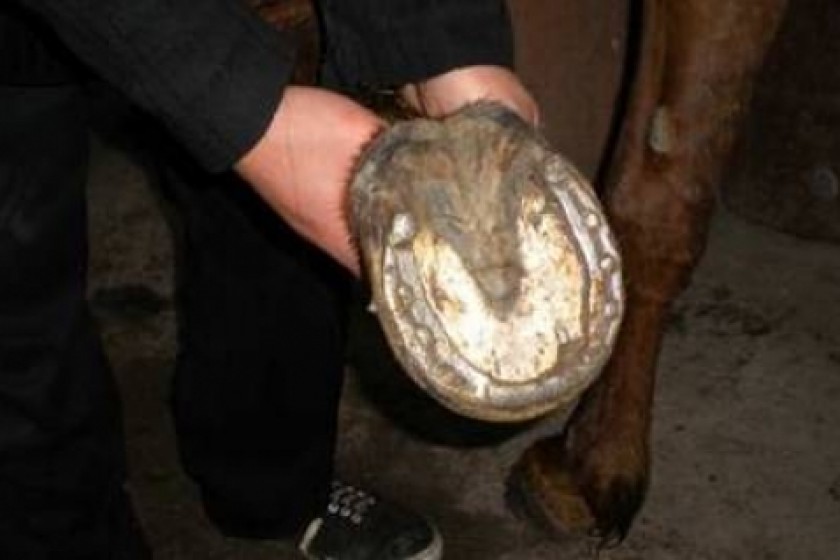
Georgian Forest Ranger's Suspicious Death: Investigation Is Not Bullet-Proof
By Nino Bakradze
One fact is certain: Merab Arevadze was killed on May 17, 2012 while on the job as a ranger working in Borjomi-Kharagauli National Park in the Republic of Georgia.
Georgian courts have ruled that Arevadze died when a horse ridden by a hunter named Davit Mchedlidze injured him. An autopsy indicated Arevadze bled to death from damage to the main artery in his left pelvis; evidence suggests the damage may have been caused by two bullets.
So was he killed by a horse? Or did somebody shoot him?
More than two years later, the answer is still unclear. Crucial evidence has gone missing, and a powerful police official denies that he interfered with the investigation, even as he denies his son was involved in Arevadze’s death.
The evidence pointing to bullets includes:
- Two small puncture wounds on the left buttock 8-9 centimeters deep and 1 centimeter apart (investigators suggested he fell onto sharp rocks, but there were no sharp rocks near the spot where he died).
- The nails on the shoes of the horse that investigators claim kicked the deceased were 2 centimeters apart. Near those two punctures, there was no sign of the bruising or internal bleeding that a potentially fatal kick from a horse would cause.
- His pelvic bone was shattered; according to an independent forensic expert who has examined the evidence, the nature of the injury suggests that it did not happen from a collision or a fall.
- There was no horsehair on the body and no signs of injury on the horse.
- One set of X-rays showed two white spots that a doctor who specializes in reading X-rays said were similar to those made by bullets lodged in a body.
- A doctor who read the X-rays twice suggested to the medical examiner that he look at one white spot near a lower back vertebrae.
- The medical examiner came out of the autopsy exam at one point and told relatives that Arevadze had been shot. But in his final autopsy report, there is no mention of any bullets, or of the 11 X-rays that were taken of the body.
This trail of evidence appears to have been mishandled, downplayed or ignored by:
- The Kharagauli local police department
- Imereti regional police department
- Medical examiner Grigol Grigolashvili
- Kutaisi city prosecutor Davit Simonia
- Kutaisi City Court
- Kutaisi Appeals Court
- Georgia Supreme Court
Why?
Davit Mchedlidze, the hunter who was riding the horse in the park at the time, is sitting in Ortachala Prison No. 12 serving the last few months of a three-year sentence for “accidentally causing death,” which was reduced from an earlier murder conviction. He has consistently denied having anything to do with Arevadze’s death.
But a series of sometimes heated meetings between Arevadze’s family and a powerful local official, Imereti regional police department deputy chief Mamuka Chkoidze, centered on accusations that Chkoidze’s son Giorgi was involved in Arevadze’s death and that Mamuka Chkoidze used his influence to cover up that involvement.
In a phone conversation with an OCCRP reporter, Mamuka Chkoidze acknowledged that there were accusations against his son, who was 16 at the time of the crime, but strongly denied his son was involved. Accusations from the victim’s family revolve around a local government official’s birthday party, and whether Arevadze came upon someone trying to kill a deer to provide meat for that party. The fines for hunting in the park are very high.
“If they think my son killed Arevadze with my gun, they could have examined my gun, but they didn’t do it,” Mamuka Chkoidze said.
That’s not a strong argument in an investigation, conducted in part by Mamuka Chkoidze’s own police department, which has failed to examine many key pieces of evidence.
Death in the Dark
According to court documents, Arevadze died after being struck by a horse ridden by Davit Mchedlidze. The court document says Mchedlidze, a 28-year-old former policeman himself, then hid the body near a place called Stepuri Grove with the help of his 33-year-old cousin, Zaza Mchedlidze.
In February of 2013, Kutaisi City Court sentenced Davit Mchedlidze to 20 years for murder with a blunt object. (A nationwide amnesty program reduced that sentence to 15 years). The court sentenced Zaza Mchedlidze to 27 months for covering up the crime.
 Videos
Videos Photos
Photos




Write a comment